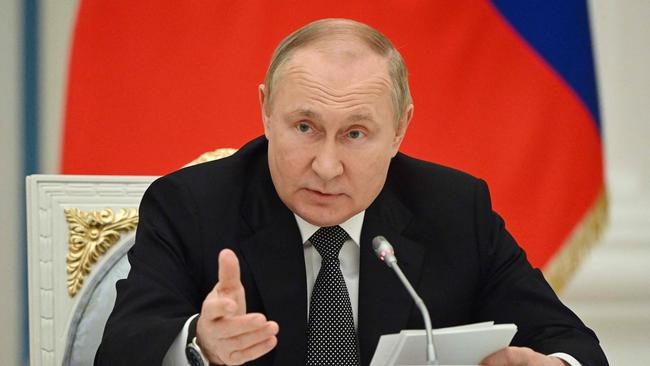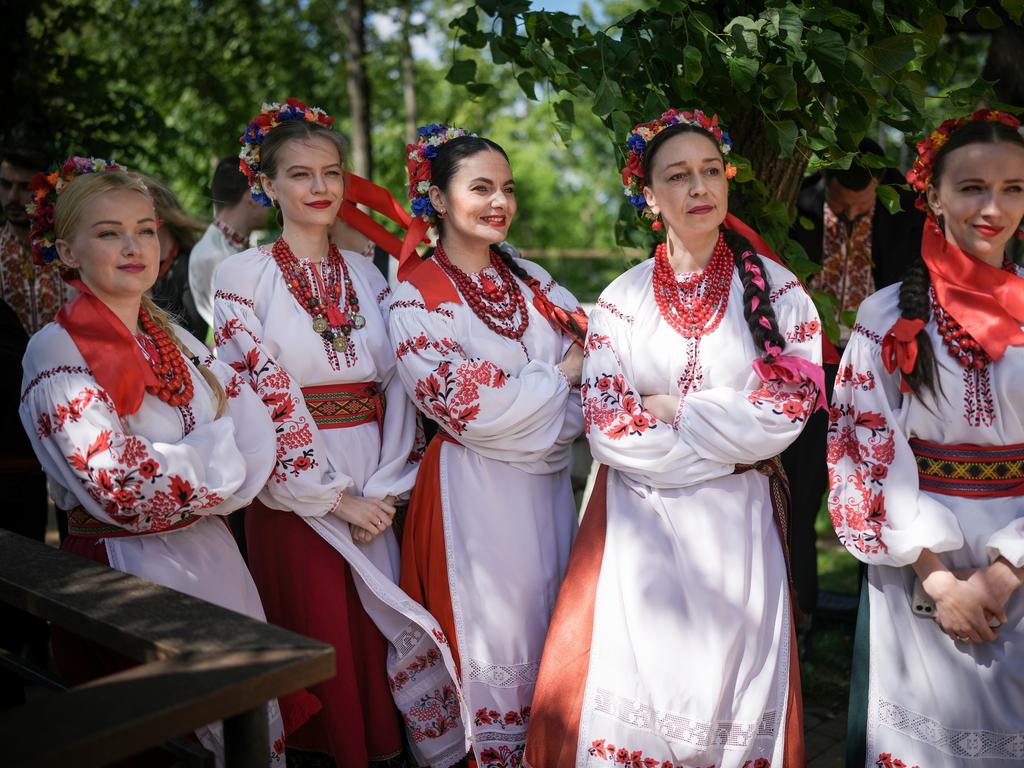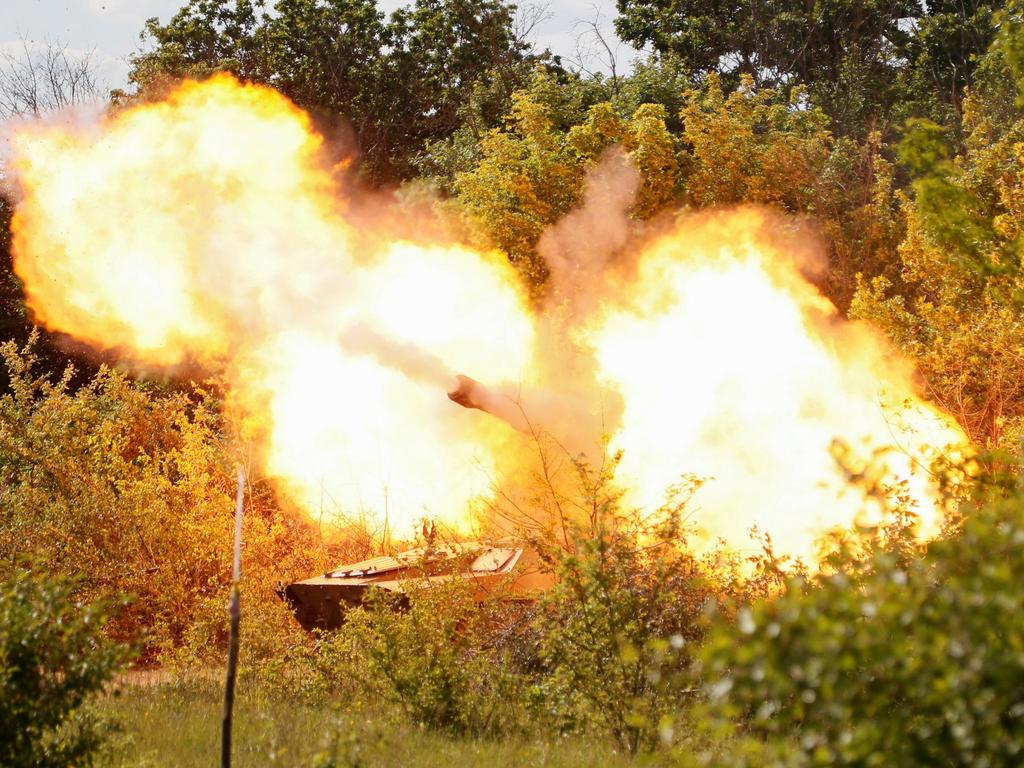Humiliated and weakened, Putin more dangerous

During the past 30 years, the Russian Federation has lost more than a quarter of its territory and half its population. What was once one of only two superpowers in the world was divided into 15 separate countries with the rump of the Russian Federation having an economy scarcely the size of that of Australia or Italy.
However, today’s Russia still has around 6000 strategic nuclear warheads and at least 1900 tactical nuclear weapons. Other than the US and China, Russia is the only country able to wage global nuclear war.
Moscow’s military power and sheer size have led most commentators to describe it as a major power. In view of the dismal performance of Russia’s conventional miliary power in Ukraine we must revisit that judgment.
Most Russian experts believed Vladimir Putin’s reforms of Russia’s military since 2008 have produced a modern well-armed force. In March, an Australian, Russian-born expert wrote about “How the Russian military remade itself into a modern, efficient and deadly fighting machine”.
The fact is the West grossly exaggerated the military capabilities, organisation and leadership, and quality of Russia’s armed forces and its weapons. The combat performance of Ukrainian troops was very seriously underestimated. Most of us were not aware of the scale of military training and intelligence provided by the US to Ukraine. Moreover, Moscow totally misjudged the response of Ukrainians to Moscow’s invasion.
How will this conflict be resolved? It may drag on as a long, drawn-out slugging match – as we are seeing right now over Severodonetsk. This may eventually result in a ceasefire and negotiations over territory and Ukraine’s future neutral status. It is hard, however, to imagine Putin agreeing to such a humiliation after having made it clear at the outset of this war that his non-negotiable red line was a treaty signed by NATO that would never allow Ukraine to become a NATO member. The other option is for Putin to continue with the war, no matter what the cost: that may include the use nuclear weapons.
Henry Kissinger describes Russia’s potential nuclear use as flirting with an unimaginable catastrophe. I would add that there is no such thing as limited use of tactical nuclear weapons. Nuclear escalation would be difficult to prevent. Kissinger observes that Putin will have to decide at what point escalating the war will strain Russia’s society to a point that will limit its fitness to conduct international policy as a great power in the future.
Putin has already greatly miscalculated the situation he now faces internationally, where a major part of the world has turned against him. Robert Service, a leading historian of Russia, says the key to understanding Putin is his adamant belief that Russia is “a great global power” and there is no state more important to him than Ukraine. Without “Little Russia” (Ukraine) there would be no Great Russia or Russkii Mir (Russian World).
Service’s opinion is that on November 10, 2021, when the US and Ukraine signed a Charter on Strategic Partnership, which asserted America’s support for Kiev’s right to pursue membership in NATO, this was an intolerable prospect for Putin. Preparations immediately began for Russia’s “special military operation” in Ukraine. Putin cannot afford to allow a neighbouring Slav state to become a democracy – Russia’s people might get dangerous ideas.
Walter Russell Mead observes that the worst-case scenario for Putin would be for Russia’s war in Ukraine to end in a comprehensive military defeat, with the collapse of pro-Russian enclaves in the Donbas and Crimea, and Ukraine’s integration into the West. Such a defeat – were it to occur – would be more than a personal humiliation; it could be a career-ending setback for Putin. It would deliver a psychological and strategic shock to Russia’s standing and self-image that it has a unique role in world history. It would plunge Russia into an identity crisis with unpredictable domestic political consequences. Some Russian experts, such as Andrei Kolesnikov, are talking about “the complete collapse of everything” in Russia. He considers that under Putin Russia’s future “has been amputated”.
It may be psychologically impossible for Putin and those around him to accept defeat until every measure, however ruthless, has been brought into play. My view is that in the event Putin considers his personal survival to be at risk, he would be willing to use nuclear weapons. That would then risk escalation to a general war in Europe.
So, what is the future of today’s Russia? Short of victory in Ukraine, Putin faces explaining to the Russian people why he has led them to such a humiliating defeat, as well as the further isolation of Russia. An entirely isolated and weakened Russia faces not only long-term decline, but the risk of further chunks of its already much reduced territory deciding to go it alone and separate from the Russian Federation.
Contrary to the views of the US Secretary of Defence, a severely weakened, isolated and smaller Russia might then become more – not less – dangerous for the world, including Australia.
But the immediate implication for Australia is whether Xi Jinping now feels more confident about invading Taiwan.
Paul Dibb is emeritus professor of strategic studies at the ANU.






The military humiliation of Russia in its Ukrainian quagmire raises the ultimate question for Moscow: is this now the end of Russia as a major power? In many ways, what we are witnessing in Ukraine today may be the prolonged death throes of the Russian empire, which started 30 years ago with the end of the Soviet Union. But how much weaker and smaller may it become?